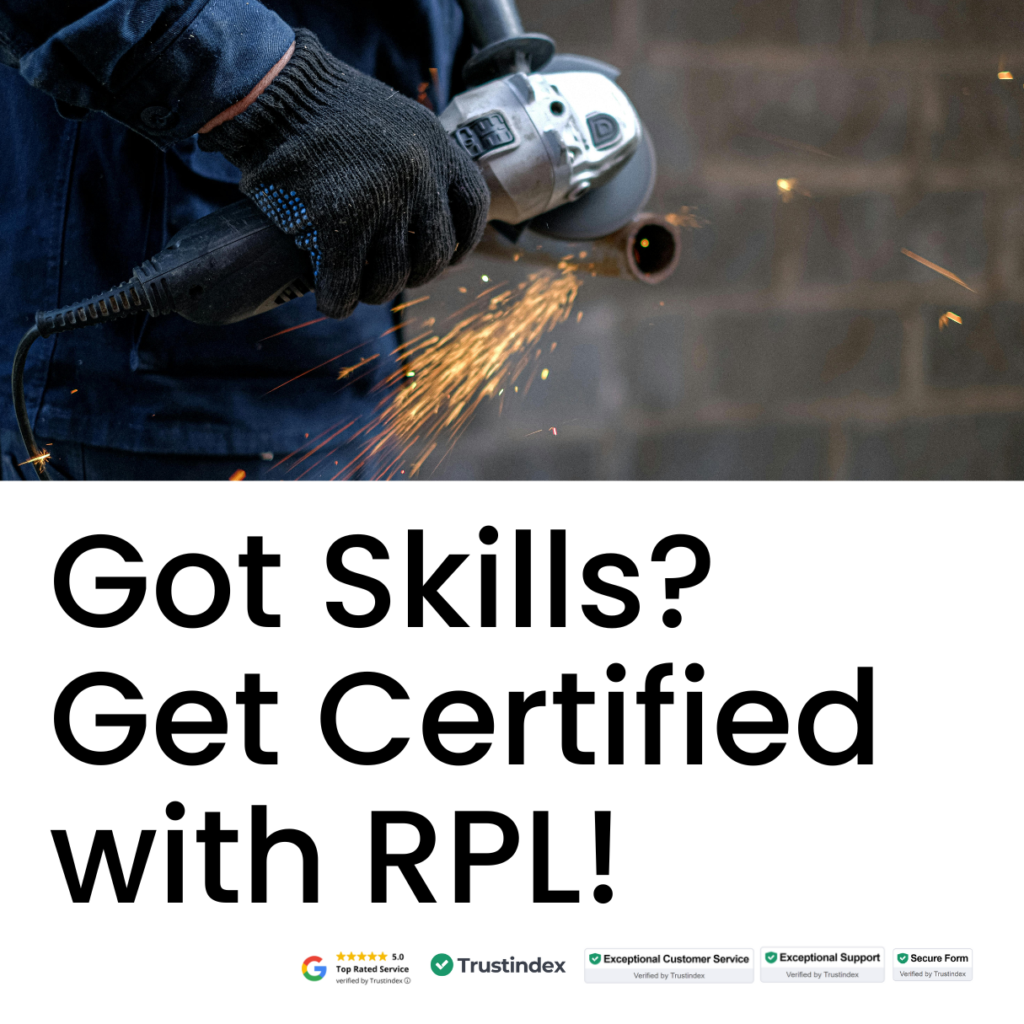Working in Australia is a goal for many professionals. For those people, Recognition of Prior Learning (RPL) could be the answer. This process helps you turn your experience and skills into formal qualifications. Though it makes it easier to meet immigration requirements.
Understanding RPL for Migration
Recognition of Prior Learning for migration is a process. It assesses a person’s existing prior learning acquired overseas. If you have a formal or informal learning experience, Recognition of Prior Learning can confirm it. Migrants can bridge the gap between their international credentials and Australian qualifications.
It looks at whether your skills and experience meet the qualifications needed for the job you want in Australia.
Why is RPL important for Australian Immigration?
The Australian immigration system often requires certain skills or qualifications. Recognition of Prior Learning helps people with experience in a field but without formal qualifications. After getting the qualification through RPL, you will have several opportunities. It increases eligibility for various visa categories, including skilled migration visas.
Skill Assessment for Migrants in Australia
In the visa application process, it is mandatory to undergo a skill assessment for a skilled visa or employer-sponsored visa. Recognition of Prior Learning (RPL) plays a crucial role in the skill assessment process, as many skill assessment authorities, such as Trades Recognition Australia (TRA), VETASSESS, and the Australian Computer Society (ACS), accept RPL qualifications in their skill assessment process.
In some occupations, individuals can begin the skill assessment process with RPL, even without formal education. For example, a chef without formal qualifications can still pursue a skill assessment through Recognition of Prior Learning. Occupations such as carpenters, electricians, plumbers, bakers, welders, and hairdressers can use RPL to obtain their skill assessment.
Eligibility Criteria for RPL
To ensure the individuals’ prior learning, they must meet certain criteria. Here are the key eligibility requirements for Recognition of Prior Learning:
- Relevant experience: The individual should have relevant work experience. You can gain this experience through various methods.
- Evidence of Skills and Knowledge: Learners must provide clear proof of their skills and knowledge. It can be work samples, reference letters, performance reviews and other relevant documents.
- Current Competency: The individual’s current skills and experience must be assessed. You must also show that your previous learning is current and relevant.
- Formal, Informal, or Non-Formal Learning: RPL recognises various types of prior learning. A person can learn through formal, informal, or non-formal methods. RPL recognises all types of learning.
- Alignment with Qualification Requirements: The person’s prior learning must match the qualifications they seek. It should also meet the standards set by the Registered Training Organisation (RTO).
- Documentation and Evidence: RPL applicants must submit organised documents. These documents should clearly show proof of their skills and experience. Portfolio documents should include of their work history, skills, and relevant achievements.
- Compliance with Legal and Regulatory Requirements: Individuals must need to comply with legal & regulatory requirements. Specifically to their industry & qualification.
The RPL Process
Initial Consultation: Start initial consultation with STUDYIN. Discuss career goals & determine if Recognition of Prior Learning aligns with the required qualifications. We offer a free skill assessment check to gauge your RPL eligibility.
Evidence Collection: Collect a thorough portfolio of evidence that showcases your competencies. It can include work samples, project portfolios, job descriptions, reference letters, certificates, etc.
Evidence Review: The RTO assessors will check your evidence. They will compare it to the required skills for the qualification.
Outcome: After passing the assessment, the individual will receive a nationally recognised credential. If not, you might need to undergo extra training or provide further evidence.
Learn more about the RPL process here.
Your Next Step: Begin Your RPL Journey Today
RPL is an essential tool for migrants seeking to formalise their skills and meet Australian immigration requirements. Get started today with Free 40-Second RPL Skill Assessment and take the first step toward turning your experience into official recognition.
All qualifications are awarded by our trusted partner RTOs.
FAQs
1. What is RPL, and how does it help with Australian immigration?
Recognition of Prior Learning (RPL) is a process that evaluates your work experience and informal learning, converting it into formal qualifications recognised by Australian authorities. By using RPL, you can meet the qualification requirements for various skilled migration visas or employer-sponsored visas. However, immigration laws and requirements can vary at any given time, so it is essential to consult a registered migration lawyer. They can assess your circumstances and provide tailored advice to ensure you’re following the best pathway for your immigration goals.
2. Who is eligible for RPL?
RPL is ideal for skilled workers with hands-on experience, career changers, and migrants with informal learning. If you have significant work experience but lack formal qualifications, RPL allows you to gain recognition for your skills, improving your eligibility for Australian immigration. However, the specific requirements may vary depending on the qualification you are aiming to obtain through RPL. To get personalised advice and understand how RPL can benefit you, please schedule a free 40-second skill assessment to speak with our expert RPL consultants.
3. What documents do I need to provide for the RPL process?
You’ll need to submit evidence that showcases your skills and experience, such as work samples, reference letters, job descriptions, and certificates. The more detailed and comprehensive your evidence, the smoother the RPL process will be. Please refer here for more information.
4. How long does the RPL process take?
The RPL process generally takes 4-12 weeks, depending on how quickly you provide the required documents. Once your evidence is reviewed by a Registered Training Organisation (RTO), you’ll receive your qualification.
5. Is RPL recognised across Australia?
Yes, RPL qualifications are recognised nationwide as all certificates are awarded by Registered Training Organisations (RTOS) in Australia. This means the qualifications you gain through RPL will be valid for employment and immigration purposes.









